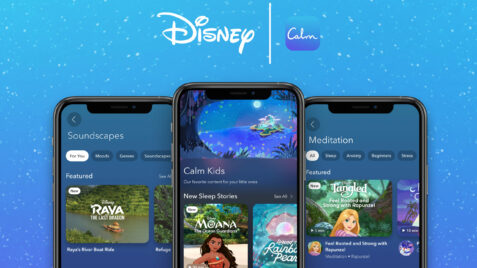As the rate of employee sick leave related to mental health challenges continues to rise globally—accounting for 27% of sick leave in 2024—employers around the world continue to revamp their mental health strategies.
Many organizations are turning to digital apps, for example, to help employees get timely and appropriate mental health support in the face of stigma and other barriers to care. From women’s mental health and adolescent care to financial wellness and sleep support, myriad digital mental health apps have emerged to address the diverse needs of employees and their families.
At the same time, however, global organizations aren’t simply acquiring one point solution after another to tackle the next discrete challenge. Rather, they’re carefully selecting mental health vendors and products that fit seamlessly into their enterprise and deliver high value. In short, they’re making sure vendors and products are enterprise ready.
But what does enterprise ready mean when it comes to digital mental health vendors? Here are five criteria global organizations use to assess the enterprise readiness of mental health vendors and products.
1. Demonstrates proven outcomes
Although there’s no universally accepted standard for evaluating workplace mental health programs, organizations are increasingly seeking data to demonstrate their impact, according to directors at the National Alliance on Mental Illness (NAMI). Employers want data-based evidence that their investments in mental health are improving both individual well-being and broader organizational outcomes.
Without a standardized measurement framework, enterprises have the flexibility to define which outcomes to measure and how, the directors argue. What matters is that they establish a method for evaluating the impact of their mental health programs— whether that’s utilization rates, employee satisfaction, reduction of depression and anxiety symptoms, cost savings, or other metrics—and assess mental health vendors and their products accordingly.
Of course, a critical component is selecting mental health vendors that provide analytics capabilities, benchmarking tools, and reporting dashboards, and that can demonstrate proven outcomes.
Calm Health analytics capabilities and proven outcomes
Calm Health, a digital mental health wellness product, enables HR administrEAPators to gain insight into their population’s challenges and mental health to inform decision making about benefits strategy and programs. The product’s analytics are based on users’
- Mental health screening results for anxiety symptoms (Generalized Anxiety Disorder, GAD-7) and depression symptoms (Patient Health Questionnaire 9 – PHQ-9)
- Self-reported conditions (e.g., cancer, diabetes, Parkinson’s disease, Post-Traumatic Stress Disorder), goals (e.g., sleep better, build resilience, cope with stress), and topics of interest (e.g., work, women’s health, nurse burnout); and
- Follow-through on the personalized recommendations provided by Calm, (e.g., exploring their employee assistance program, exploring therapy options available through their health plan, etc.)
Through a dedicated analytics portal, HR leaders can view the top self-reported conditions across their population, a breakdown of anxiety and depression symptoms across their population over time, and data about the recommendations provided, including user views and click-through rates.
Calm Health analytics show that
- 77% of registered Calm Health users complete a mental health screening, 91% create a goal, and 39% engage in a Calm Health evidence-based program. Thirty-seven percent of users who engage in at least one session and take a follow-up screening report improvement in their emotional well-being. Users rate Calm Health programs an average 4.5 out of 5.
- One in three Calm Health users follows through on personalized program recommendations based on their screenings and self-reported health conditions.
- Calm Health users are twice as likely to engage in outpatient mental health services compared to a baseline group from a national payer not using Calm Health.
- A national payer found that nearly 4 in 10 Calm Health users (37%) with screening results that indicated they may have moderate-to-severe symptoms of anxiety or depression engaged in therapy, and patients with a newly diagnosed mental health condition who received outpatient care can save up to $2,565 per person over the 15 months following that diagnosis and up to $3,321 per person over 27 months.
- According to a recent independent randomized clinical trial, people using Calm Health showed statistically and clinically significant improvements (approximately 25%) in well-being compared to a control group.
2. Uses principles of evidence-based therapy models
While there isn’t an evidence-based standard for measuring mental health solutions, there are evidence-based therapy models that set the standard for quality. The American Psychological Association defines evidence-based practice as the “integration of the best available research with clinical expertise in the context of patient characteristics, culture, and preferences.”
Evidence-based therapy models include
- Cognitive behavioral therapy, which has been proven effective for a range of mental health issues, including stress, anxiety, depression, and PTSD, by helping people modify dysfunctional thoughts and behaviors to improve emotional well-being.
- Dialectical behavior therapy, which is designed to help people manage intense emotions and improve their ability to cope with stress, regulate emotions, and enhance relationships.
- Acceptance and commitment therapy, which encourages people to accept unwanted thoughts and feelings as a natural part of life while committing to actions that align with their values.
Calm Health offers an extensive library of programs based on the principles of CBT, DBT and ACT. These programs, all developed by subject matter expert psychologists, support the mental health of people with health conditions, challenging life experiences, and occupational stress or trauma.
3. Seamlessly integrates into existing benefit ecosystems
As the rates of chronic disease and healthcare costs surge, HR leaders are under pressure to demonstrate the value of investments in employee well-being, including the effectiveness of their vendors and partnerships, according to Business Group on Health.
As part of this effort, HR leaders are looking for products that work seamlessly together rather than add complexity to their ecosystem. According to a One Medical study, half of employees don’t have a good understanding of their employer’s health and benefits offerings. It’s imperative, therefore, to adopt products that help employees find and use the benefits available to them as part of one, cohesive benefits ecosystem.
Calm Health integrates with benefits ecosystems to drive utilization of programs
Calm Health is designed to seamlessly integrate with employer and health plan benefits to help drive employee engagement and utilization of programs.
For example, organizations can configure Calm Health to include a link to their employee assistance program (EAP), which typically have a utilization rate of about 5.5%. When a Calm Health user’s mental health screening results suggest they may have symptoms of moderate anxiety or depression, Calm Health can guide them to their EAP and other available mental health resources directly from within the Calm Health app. As noted above, one in three Calm Health users follows through on personalized program recommendations based on their screenings and self-reported health conditions, helping boost utilization of benefits.
Calm Health also can be configured to support single sign-on, an important feature for large organizations seeking to eliminate the hassle of logging in separately to multiple applications and improve the employee experience.
4. Trusted by industry peers and scientific authorities
Of course, with so many choices of mental health vendors and new apps always emerging, enterprises want to see proof of success, particularly in their industry. They want reassurance that vendors and their products have earned the trust of industry leaders, including peer organizations, national payers, analysts, and independent scientific authorities. Case studies, customer references, and industry certifications are vital to validating vendor and product credibility.
Calm is a trusted brand by organizations in all industries
Calm has earned the trust from more than 3,500 organizations spanning healthcare, education, public sector, retail, manufacturing, technology, and financial services (see Calm customer stories). Calm Health is now available to 36 million people through their employers and health plans at no extra cost.
Calm Health has achieved critical certifications
For its excellence, Calm Health has earned the APA Labs Digital Badge, a science-based certification awarded to digital mental and behavioral health tools that meet rigorous standards for clinical quality, safety, privacy, and regulatory compliance.
The APA Labs Digital Badge Program from APA Labs is designed to provide clarity on best practices and set the guidelines for digital mental and behavioral health technologies. The program evaluates tools in six domains, including product clarity and audience, psychological science; compliance and risk management; data protection and privacy, technical security and stability, and usability and accessibility.
Calm Health is HITRUST certified and HIPAA compliant, ensuring rigorous protection of personal health information. Calm holds SOC 2 Type II certification and is designed to comply with GDPR standards, demonstrating its commitment to data security, privacy, and global regulatory compliance.
5. Serves as a long-term strategic partner committed to customer success
Enterprises are looking for vendors that are committed to their success at every stage of engagement, from the initial contact through contracting, procurement, implementation, and ongoing performance monitoring and management. The most valued vendors are strategic partners that minimize complexity, anticipate needs, and proactively support positive long-term outcomes.
Calm partners with organizations at every stage of engagement
At every step of the way, Calm is committed to driving a positive impact for individual users of Calm Health and the broader organization. Customer success management representatives partner with customers to
- Conduct a comprehensive kickoff with the team to set goals, Calm Health go-live date, etc.
- Serve as the liaison to internal Calm procurement and legal teams to ensure all contracting and compliance processes proceed expeditiously.
- Secure a clean eligibility file for fast implementation, e.g., Calm Health went live with a national health plan in 22 days.
- Develop and execute a strategic launch plan, including best practices to drive user engagement.
- Assess population needs on a regular basis and evolve marketing strategies accordingly to maximize Calm Health impact.
Finally, large enterprises are seeking to provide parity in benefits across geographies. Increasingly, they’re looking for mental health vendors that can support workforces around the world with culturally relevant programs offered in their native languages.
Calm Health is available in the US, UK, Canada, the EU and rest of the world. The product supports English, French, German, Spanish, Portuguese, Korean, Italian, Japanese, Mandarin, Korean, Japanese, Mandarin, and Polish.
Calm Health is a proven, future-ready vendor
Enterprises have made a lot of progress in supporting the mental health and well-being of employees and their families, but there’s more work to be done. As population needs evolve, they’re seeking true strategic partners that can make a meaningful impact in the lives of individuals and their families as well as the broader organization. Mental health vendors must demonstrate
- Positive outcomes, including engagement and efficacy.
- How their products fit seamlessly into their existing benefits ecosystems to minimize complexity and drive utilization.
- How their products support evidence-based therapy models to deliver quality experiences.
- Trust and credibility among their peers, experts, and scientific authorities.
- Long-term commitment to their success, beginning day one.
If you’d like to learn more about how Calm Health can meet the needs of your enterprise clients, schedule a conversation with our consultant team today.




